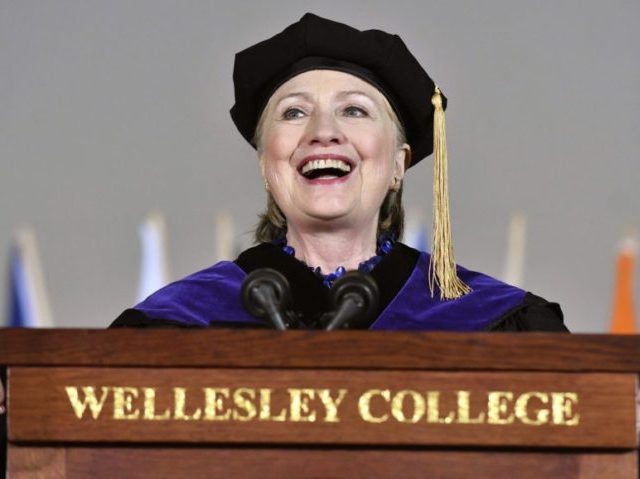An increasing number of women’s colleges in the United States are opening their doors to transgender students, according to a report from the Associated Press.
A new report from the Associated Press details the journey of Wellesley College student Ninostka Love, the first transgender female student enrolled at the prestigious women’s college, which has graduated the likes of Hillary Clinton and Madeline Albright.
American universities have faced increasing pressures to provide resources for transgender students, who make up an estimated 0.7 percent of the nation’s youth. Many schools have introduced gender-neutral bathroom and expanded upon their existing LGBTQ centers to allow for transgender-specific resources and activism projects.
“For me to be accepted to one of the best colleges for women in the nation, it is a big validation of the person that I have become. At first I couldn’t believe it,” said Love, an Ecuadorian-born 28-year-old who fled to the U.S. in 2009 after being threatened over her transgenderism. “I’m so thankful to be here.”
Since 2014, at least eight Women’s Colleges have changed policies so that transgender females can enroll. Some of the schools include Smith, Bryn Mawr, and Barnard Colleges, all of which are known for their strong academic programs.
Genny Beemyn, director of the Stonewall Center at the University of Massachusetts, Amherst, says that the changes being enacted at women’s colleges around the country are long overdue. “I think it’s a step forward, one that’s long overdue. If they say they’re women, they are saying that they can’t attend is denying their identities and marginalizing them,” Beemyn said.
Wellesley is using Love’s enrollment as a signal of the institution’s progressive outlook on transgenderism. “As the leading liberal arts college for women, Wellesley’s mission is to educate women who will make a difference in the world — and those women represent diversity in every dimension,” Sofiya Cabalquinto, a Wellesley spokeswoman, said in a statement.
Despite being a minority of one at Wellesley, Love claims that she is not concerned about being different on campus. “I knew that it would be a challenge; I knew that it would be difficult,” she said, “but at the same time I knew that I can make a difference — and I knew that I can show to other people that we transgender women are humans, too.”
Only time will tell if women’s colleges that admit transgender students will face a backlash similar to that experienced by colleges that have not upheld free speech on campus.

COMMENTS
Please let us know if you're having issues with commenting.